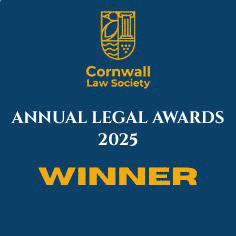- by
Estate Planning for Blended Families
An estimated 1 in 3 families in the UK now fall into the category of being described as a blended family (or step-family, i.e. one in which a couple lives together with children from their previous relationships). Whilst often having many positive benefits, such families are increasingly involved in bitter inheritance disputes that could have been avoided with some careful Estate Planning.
In this blog post, Lucy Wilton, a solicitor in our Wills, Trusts and Probate Team, explores this area of law.
Divided loyalties and complexities with blended families
The financial complexities of Estate Planning for blended families usually arise from the dilemma of how to provide for a new partner while securing your own children’s future. Often, the most bitterly fought inheritance disputes arise within blended families that have not done any effective Estate Planning, with children from first marriages falling out spectacularly with their surviving step-parent.
It’s a distressing situation to witness, let alone be part of, and it can be avoided with careful planning and transparent communication between the generations. Not doing so can result in the type of legacy you would rather not leave for your loved ones—a long goodbye if ever there was one.
Typical Wills for blended families in the UK
Even when Wills have been made, they often need to be updated or are unsuitable for what is now commonly referred to as a blended family. So, it’s worth checking the details of your Will and the type of Will you have in place. Part of the role of a solicitor is preparing your Will to pre-empt potential conflicts of interest arising from your instructions, so at the very least, you can make a decision fully aware of the possible problems! These are often scenarios you may not have considered yourself or even be aware can occur.
When to update your Will
Understandably, people often forget about their Will once they have made one. However, an out-of-date Will can also cause family strife. Read our blog here on changing life circumstances that mean you should update your Will. If you are in any doubt, the safest action would be to ask a professional to review your documents once you have informed them of your up-to-date circumstances.
Simple or ‘Mirror’ Wills
Simple Wills or ‘Mirror Wills’ tend to be the cheapest type of Will but frequently lack the flexibility to cope with modern-day family structures. Quite often, couples have drawn up what is commonly referred to as ‘Mirror Wills,’ and these types of Wills can be at the root of problems blended families encounter when one spouse dies.
In its most basic form, A Mirror Will typically means the couple leave everything to each other. However, this is all very well until one partner dies and the surviving partner embarks on another relationship. This could mean that when the surviving partner dies, their entire Estate goes to their new spouse, and children from their original marriage are left out in the cold, potentially facing a costly inheritance dispute if they want to try and make a claim.
We also see a significant number of simple Wills that try to leave impractical life interests to a new partner or spouse, such as giving them the right to live in the home for a period of time after death. This kind of drafting can be unintentionally inadequate without proper advice and careful consideration of potential future issues.
Advantages of a Flexible Will for blended families
One significant advantage of making what we describe as a Flexible Will is that it is less likely to become outdated than a Simple or Mirror Will. This is because, as the assets can be held in a Trust and your appointed Trustees can make decisions at the time of your death in accordance with your Letter of Wishes, they can also make decisions with information available to them that you may not have known at the time of making your Will.
For example, you can include new grandchildren or be aware of changes in the personal circumstances of stated beneficiaries, such as divorce or bankruptcy. Or, what would happen if you had moved house during your lifetime from the property that you earmarked for your spouse/partner to live in after your death under the terms of your Will? A Letter of Wishes is also more easily updated by you than a Will and less costly to update, too.
Life Interest Trusts
One solution to avoid conflict between your spouse and children from your previous marriage is to make what is referred to as a ‘Life Interest Trust’. It is commonly used in Estate Planning for blended families to enable a spouse from a second marriage to remain in the marital home for their lifetime while ensuring that children from the first marriage of the spouse who has died will still eventually receive their inheritance.
As explained above, we recommend that a Life Interest Trust is achieved via a Flexible Will, as opposed to a simple Fixed Will, where drafting can become cumbersome when unforeseen circumstances occur between making your Will and the actual situation at the time of your death.
Facing the future
By not putting your head in the sand and facing the future rationally, you are protecting your loved ones and ensuring that they all receive the inheritance you would wish them to, rather than leaving them to deal with a distressing family fallout at a time when they are least able to cope with it. The time is now; don’t put it off. They will thank you for it one day.
Get in touch to speak to us about Wills for blended families
Our experienced and friendly team would be pleased to hear from you if you would like to discuss Estate Planning with regard to a blended family scenario. You can reach us on 01872 241408 or by emailing info@penderlaw.co.uk




